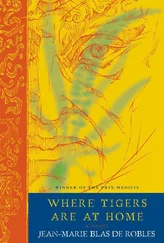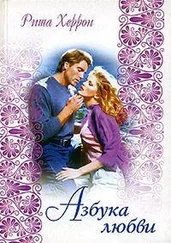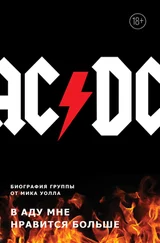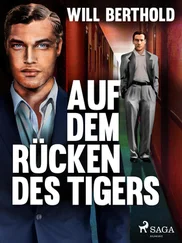Мик Херрон - Real Tigers
Здесь есть возможность читать онлайн «Мик Херрон - Real Tigers» весь текст электронной книги совершенно бесплатно (целиком полную версию без сокращений). В некоторых случаях можно слушать аудио, скачать через торрент в формате fb2 и присутствует краткое содержание. Год выпуска: 2015, Издательство: Soho Press, Жанр: Старинная литература, на английском языке. Описание произведения, (предисловие) а так же отзывы посетителей доступны на портале библиотеки ЛибКат.
- Название:Real Tigers
- Автор:
- Издательство:Soho Press
- Жанр:
- Год:2015
- ISBN:нет данных
- Рейтинг книги:4.5 / 5. Голосов: 2
-
Избранное:Добавить в избранное
- Отзывы:
-
Ваша оценка:
- 100
- 1
- 2
- 3
- 4
- 5
Real Tigers: краткое содержание, описание и аннотация
Предлагаем к чтению аннотацию, описание, краткое содержание или предисловие (зависит от того, что написал сам автор книги «Real Tigers»). Если вы не нашли необходимую информацию о книге — напишите в комментариях, мы постараемся отыскать её.
Real Tigers — читать онлайн бесплатно полную книгу (весь текст) целиком
Ниже представлен текст книги, разбитый по страницам. Система сохранения места последней прочитанной страницы, позволяет с удобством читать онлайн бесплатно книгу «Real Tigers», без необходимости каждый раз заново искать на чём Вы остановились. Поставьте закладку, и сможете в любой момент перейти на страницу, на которой закончили чтение.
Интервал:
Закладка:

B ooks by Mick Herron
Down Cemetery Road
The Last Voice You Hear
Why We Die
Smoke & Whispers
Reconstruction
Nobody Walks
The Slough House Series
Slow Horses
Dead Lions
The List (a novella)
Real Tigers
To Eleanor
Copyright © 2016 by Mick Herron
All rights reserved.
Published by Soho Press, Inc.
853 Broadway
New York, NY 10003
Library of Congress Cataloging-in-Publication Data
Herron, Mick.
Real tigers / Mick Herron.
ISBN 978-1-61695-612-7
eISBN 978-1-61695-613-4
1. Great Britain. MI5—Officials and employees—Fiction. I. Title.
PR6108.E77R42 2016
823’.92—dc23 2015020061
Interior design by Janine Agro, Soho Press, Inc.
Printed in the United States of America
10 9 8 7 6 5 4 3 2 1
L ike most forms ofcorruption, it began with men in suits.
A weekday morning on the edge of the City; damp, dark, foggy, not yet five. In the nearby towers, some of which reached upwards of twenty storeys, random windows were lit, making haphazard patterns in the glass-and-steel grids, and some of those lights meant early-bird bankers were at their desks, getting a jump on the markets, but most were a sign that the other City workers were on the job, the ones who wore overalls, and whose pre-dawn tasks involved vacuuming, polishing, emptying bins. Paul Lowell’s sympathies were with the latter. You either cleaned up other people’s messes or you didn’t—and that was the class system for you, right there.
He glanced at the road below. Eighteen metres was a fair distance, viewed vertically. Dropping to his haunches he felt the relevant muscles crunch, and cheap fabric strain unpleasantly across his thighs. His suit was too small. Lowell had figured it was stretchy enough that this wouldn’t matter, but in the event he felt constricted by it, and graced with none of the power he might have imagined it bestowing.
Or maybe he was just getting fat.
Lowell was on a platform, which probably wasn’t the correct architectural term for it, above an arch through which ran London Wall, the dual-lane thoroughfare reaching from St. Martin’s-le-Grand to Moorgate. Above him was another tower block, part of a pair set at an angle to each other, and housing one of the world’s leading investment banks as well as one of its most famous pizza chains. A hundred yards away, on a grassy knoll by the side of the road to which it had lent its name, ran a chunk of the Roman wall which had once encircled the City, still standing centuries after its builders had given up their ghosts. A symbol, it occurred to Lowell now. Some things endured, survived changing attitudes, and it was worth fighting to preserve what remained of them. Why he was here, in a nutshell.
Shrugging his rucksack free he placed it between his knees, drew a zip and unpacked its contents. In an hour or so traffic would build, heading into the City or points east, a quantity of it passing through the arch on which he perched, and all those cars, taxis, buses and bikes would have no choice but to bear witness. And in their wake would come the inevitable: the news crews, the cameras, carrying his message to the nation.
. . . All he wanted was his voice to be heard. After years of being denied his rights he was ready to fight, and like others before him, had chosen a particular mode in which to do so. This was how traditions were born. He didn’t for a moment think anything he achieved today would make a major difference, but others in his position would see, and learn, and maybe act. Someday, that difference would be made.
There was movement, and he turned to see a figure hoisting itself onto the far end of the platform, having scaled the building from the street below as Lowell had ten minutes earlier. It took a second for recognition to sink in, but as soon as it did he felt a thump of excitement, as if he were twelve again. Because this was what every twelve-year-old wanted to see, he thought, as he watched the newcomer approach. This was the stuff young boys’ dreams were made of.
Tall, broad and purposeful, Batman strode towards him through damp ribbons of fog.
“Hey,” Lowell called. “Nice one.”
He looked down at his own costume. Spider-Man was hardly age-appropriate, but it wasn’t like anyone would be offering style points: making the evening news was the aim, and superhero suits ticked the right media boxes. It had worked before and would work again. So he was the Amazing Spider-Man, and the comrade he was meeting for the first time now, with whom all arrangements had been made anonymously through a message board, was Batman, and the pair would be a dynamic duo for one morning only, and blaze through newscasts for the rest of the week. One hand on the roll of canvas he’d unpacked, Lowell levered himself to his feet and extended the other, because this too was part of an ancient narrative: men meeting and greeting, and bonding in a common cause.
Ignoring Spider-Man’s outstretched hand, Batman punched him in the face.
Lowell fell backwards as the world span out of control: lit-up office windows spiralled like stars, and all the air left his body as it hit damp brickwork. But already his mind had slipped into work-gear, and he rolled sideways, away from the edge, as Batman’s foot stamped down hard, just missing his elbow. He needed to be upright, because nobody ever won a fight from a prone position, and he concentrated on this for the next two seconds instead of wondering why Batman was kicking the shit out of him, and his focus almost paid off because he’d made it to his knees before he was punched in the head again. Blood soaked through Lowell’s Spider-Man mask. He tried to speak. A formless gargle was all he could manage.
And then he was being dragged towards the edge of the platform.
He shrieked, because it was clear what would happen next. Batman was hauling him by the shoulders, and he couldn’t break free—the man’s hands felt moulded from steel. He kicked out and hit the canvas lump, which rolled towards the edge, unravelling as it went. He swung an arm for Batman’s crotch, but hit muscle-hard thigh instead. And then he was hanging in space, the only thing keeping him aloft the caped crusader’s grip.
For a moment they were locked in near-embrace, Batman rigidly upright, Spider-Man dangling, as if posing for a cover illustration.
“For pity’s sake,” Spider-Man whispered.
Batman dropped him.
The canvas roll had hit the road before Paul Lowell did but wasn’t a roll by then, having unwound itself along the tarmac to become a strip of carpet instead of the banner he’d intended it to be. In foot-high letters, its hand-painted battle cry, a fair deal for fathers, blurred as the wet ground soaked into the fabric, along with a certain quantity of Lowell’s blood, but remained a gratifyingly newsworthy image, and would feature in many a broadcast before the day was out.
Paul Lowell didn’t see any of them, though.
As for Batman, he was long gone.
PART ONE
false friends
O n a night hotas hell in the borough of Finsbury a door opens and a woman steps into a yard. Not the front street—this is Slough House, and the front door of Slough House famously never opens, never closes—but a yard that sees little natural light, and whose walls are consequently fuzzy with mildew. The odour is of neglect, whose constituent humours, with a little effort, can be made out to be food and fats from the takeaway, and stale cigarettes, and long-dried puddles, and something rising from the drain that gurgles in a corner and is best not investigated closely. It is not yet dark—it’s the violet hour—but already the yard is shadowy with night. The woman doesn’t pause there. There’s nothing to see.
Читать дальшеИнтервал:
Закладка:
Похожие книги на «Real Tigers»
Представляем Вашему вниманию похожие книги на «Real Tigers» списком для выбора. Мы отобрали схожую по названию и смыслу литературу в надежде предоставить читателям больше вариантов отыскать новые, интересные, ещё непрочитанные произведения.
Обсуждение, отзывы о книге «Real Tigers» и просто собственные мнения читателей. Оставьте ваши комментарии, напишите, что Вы думаете о произведении, его смысле или главных героях. Укажите что конкретно понравилось, а что нет, и почему Вы так считаете.






![Мик Уолл - Жизнь и смерть Джими Хендрикса [Биография самого эксцентричного рок-гитариста от легендарного Мика Уолла] [litres]](/books/387909/mik-uoll-zhizn-i-smert-dzhimi-hendriksa-biografiya-samogo-ekscentrichnogo-rok-gitarista-ot-legendarnogo-mika-uolla-litres-thumb.webp)





